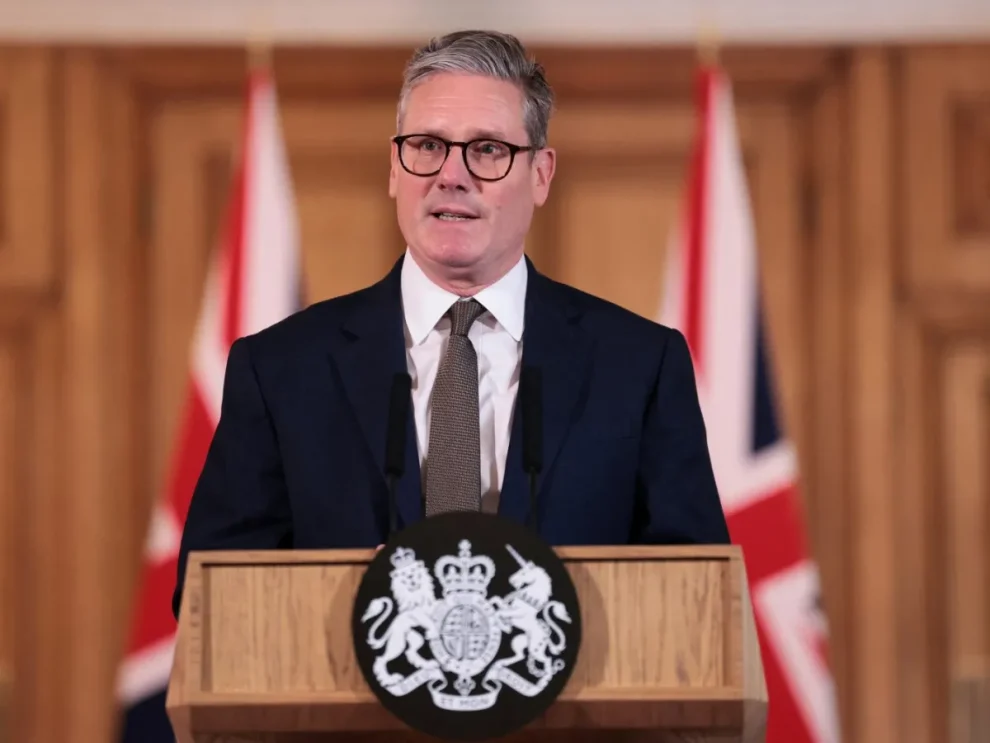Prime Minister Sir Keir Starmer has vowed to bring net migration down significantly before the next general election, promising a new immigration system that he described as “controlled, selective and fair”.
Speaking at a Downing Street press conference ahead of the government’s much-anticipated Immigration White Paper, Sir Keir declined to set a specific target for reducing net migration, but said the numbers would fall “substantially” by the end of the current Parliament.
The prime minister criticised what he called an over-reliance on overseas labour, remarking: “Some people think controlling immigration is reining in a sort of natural freedom, rather than the basic and reasonable responsibility of the government to make choices that work for a nation’s economy. And for years, this seems to have muddled our thinking. But let me be clear, it ends now.”
He continued: “We will create a migration system that is controlled, selective, and fair.”
When asked directly whether net migration would decline, Sir Keir said: “It will fall substantially by the end of this parliament.” However, he resisted calls to impose a fixed cap, arguing that such measures had repeatedly failed under previous governments: “It is not sensible to put a hard-edged cap on it,” he said.
The Immigration White Paper, set to be published this week, includes proposals to restrict overseas recruitment by care homes, increase salary and qualification thresholds for skilled worker visas, and tighten rules around dependants and student migration. The document also suggests raising the English language requirements and narrowing the list of critical shortage occupations.
Among the most controversial plans is the closure of the visa route for foreign care workers—a sector already grappling with chronic staffing shortages. It remains unclear how the government intends to offset the impact on the care sector and other industries heavily reliant on migrant workers.
Additional measures outlined in the white paper include:
- Raising the skills visa threshold to require a degree and higher salary;
- Barring dependants from joining lower-skilled workers on the Temporary Shortage List;
- Increasing salary thresholds for visa holders seeking to bring in dependants;
- Cutting the post-study work period for international students from five years to 18 months;
- Extending the qualifying period for permanent settlement from five to ten years, except for “high contributors”.
Taken together, the measures are projected to reduce net migration by around 98,000 annually.
Net migration soared after Britain left the EU, peaking at 903,000 in the year to June 2023 before falling to 728,000 by mid-2024. Nevertheless, figures remain well above the pre-Brexit high of 329,000 recorded in 2015.
The prime minister, facing mounting pressure over immigration amid a surge in support for Reform UK, defended his approach as principled rather than politically motivated. “On a day like today, people who like politics will try to make this all about politics, about this or that strategy targeting these voters, responding to that party. No, I’m doing this because it is right, because it is fair, and because this is what I believe in,” he said.
However, critics from across the political spectrum have expressed scepticism.
Tory leader Kemi Badenoch accused Starmer of “taking the public for fools”, pointing out that Labour had previously opposed similar policies now being proposed. She added: “Kicking tough solutions and decisions into the long grass with a white paper is not going to solve the problem that we have right now.”
While she distanced herself from the Conservatives’ record on migration, saying she had not been in charge at the time, Badenoch reiterated her call for a legally binding cap on immigration.
Meanwhile, the Liberal Democrats called for a concrete strategy to increase domestic recruitment, including raising care workers’ wages and reforming apprenticeships.
As the debate intensifies, one issue remains unresolved—how to balance the drive to reduce migration with the labour demands of key sectors already stretched to their limits.
















